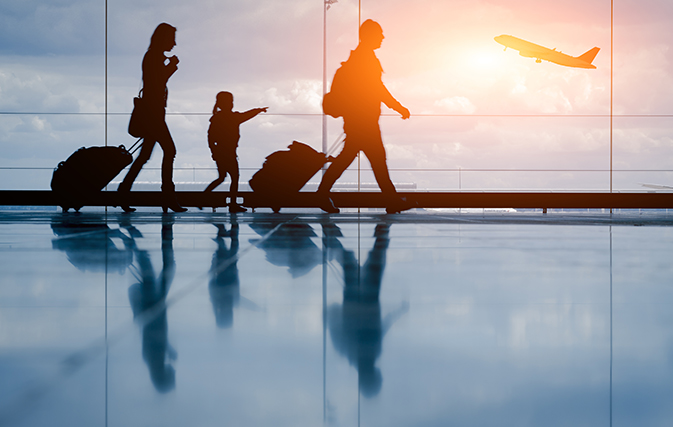GENEVA — Mandatory quarantines upon arrival will hobble travel and tourism just as the industry is beginning to take off again, says IATA. The airline group is urging governments to avoid quarantine measures when re-opening their economies, advocating instead for a layered approach of measures in the wake of COVID-19.
“Imposing quarantine measures on arriving travellers keeps countries in isolation and the travel and tourism sector in lockdown. Fortunately, there are policy alternatives that can reduce the risk of importing COVID-19 infections while still allowing for the resumption of travel and tourism that are vital to jumpstarting national economies. We are proposing a framework with layers of protection to keep sick people from traveling and to mitigate the risk of transmission should a traveller discover they were infected after arrival,” said Alexandre de Juniac, IATA’s Director General and CEO.
IATA is asking for layered bio-safety measures in two areas.
First, IATA says the industry can reduce the risk of travellers bringing in cases of COVID-19 by …
- Discouraging symptomatic passengers from traveling: It is important that passengers do not travel when ill. De Juniac notes that airlines are offering travellers flexibility in adjusting their bookings, to encourage passengers to ‘do the right thing’ and stay home if they are unwell or potentially exposed.
- Public health risk mitigation measures: IATA says it supports health screening by governments in the form of health declarations, especially standardized e-declarations via government web portals or government mobile apps.
- Health screening using measures like non-intrusive temperature checks can also play an important role. They’re not the most effective screening method for COVID-19 symptoms, but they can act as a deterrent to travelling while unwell, says IATA, plus they boost consumer confidence.
- COVID-19 testing for travellers from countries perceived to be higher risk: When accepting travellers from countries where the rate of new infections is significantly higher, the arrival authority could consider COVID-19 testing. It is recommended that tests are undertaken prior to arrival at the departure airport (so as not to add to airport congestion and avoid the potential for contagion in the travel process) with documentation to prove a negative result. Tests would need to be widely available and highly accurate, says IATA, with results delivered quickly. Also, test data would need to be independently validated so as to be mutually recognized by governments and securely transmitted to the relevant authorities. IATA adds that testing should be for active virus (polymerase chain reaction or PCR) rather than for antibodies or antigens.
Secondly, IATA says there are options for mitigating risk in cases where an infected person does travel …
- Reducing the risk of transmission during the air travel journey: IATA is encouraging the universal implementation of the Take-Off guidelines published by the International Civil Aviation Organization (ICAO). These and other recommended guidelines include mask wearing throughout the travel process, sanitization, health declarations and social distancing where possible.
- Contact tracing: A back-up measure, says IATA, should someone be detected as infected after arrival.
- Reducing risk of transmission at destination: Governments are taking measures to limit the spread of the virus in their territory that will also mitigate the risk from travellers. The WTTC’s Safe Travel protocols also figure into this.
“Safely restarting the economy is a priority. That includes travel and tourism,” says de Juniac.
“Quarantine measures may play a role in keeping people safe, but they will also keep many unemployed.
“The alternative is to reduce risks through a series of measures. Airlines are already offering flexibility so there is no incentive for sick or at-risk people to travel. Health declarations, screening and testing by governments will add extra layers of protection. And if someone travels while infected, we can reduce the risk of transmission with protocols to prevent the spread during travel or when at destination. And effective contact tracing can isolate those most at risk without major disruptions.”
He added that mandatory quarantine measures stop people from travelling, noting that recent public opinion research shows that 83% of travellers would not even consider traveling if quarantine measures were imposed on travellers at their destination.
“A layered approach to safety has made flying the safest way to travel while still enabling the system to function efficiently. That should be an inspirational framework to guide governments in protecting their citizens from the terrible risks of both the virus and joblessness. Quarantine is a lop-sided solution that protects one and absolutely fails at the other. We need government leadership to deliver a balanced protection,” said de Juniac.

